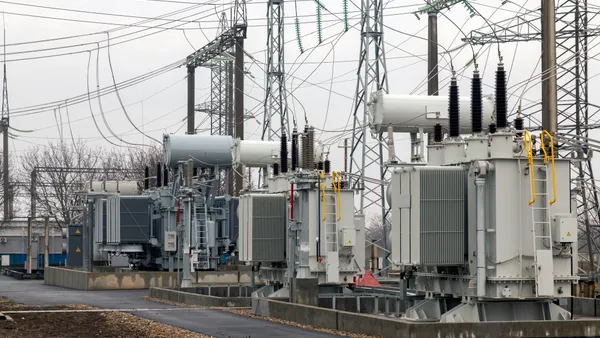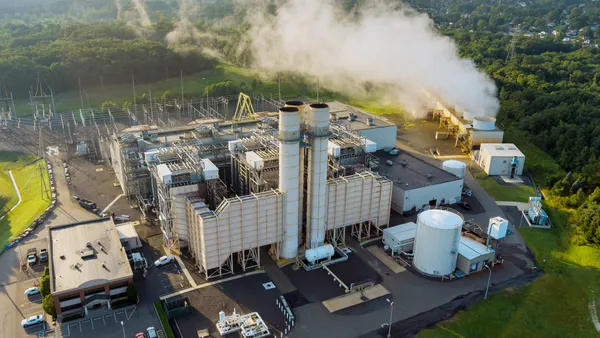Dive Brief:
- Federal regulators have informed developers of the Atlantic Coast Pipeline that alternate routes may have less of an impact on a pair of national forests, potentially sending the project back to the drawing board, Triad Business Journal reports.
- The Federal Energy Regulatory Commission (FERC) this month sent a letter to Atlantic Coast Pipeline LLC, letting developers know they are interested in a more southerly route as the project will cross portions of the Monongahela and George Washington National Forests.
- The $5.1 billion system is designed to move natural gas supplies from West Virginia to North Carolina, and backers say it can help East Coast states meet new environmental regulations.
Dive Insight:
Any pipeline the size, length and significance of the Atlantic Coast Pipeline is going to go through route changes and will face intense regulatory scrutiny. Some observers, however, think FERC's communications with the group developing the pipeline indicate growing skepticism over the project.
"The FERC letter contained 168 specific requests for additional information, some of them quite extensive," the Allegheny Blue Ridge Alliance wrote in a project update. While requests for more information are quite common, the group believes "the December 4 letter is much more demanding in its requests and sterner in its tone."
FERC directed the consortium of companies developing the project to consider alternate paths through the Monongahela and George Washington National Forests.
Regulators told the pipeline developers in a letter: "You should be aware that through our consultations with the U.S. Forest Service and our interpretation of the prescriptive-specific goals, objectives, standards, and guidelines listed in the respective Monongahela and George Washington National Forests’ Land and Resource Management Plans, we have determined that alternative routes to the south of the currently proposed ACP route may offer environmental advantages over the currently proposed route."
Four energy companies – Dominion Energy, Duke Energy, Piedmont Natural Gas and AGL Resources – proposed a new pipeline system designed to move natural gas supplies from West Virginia to North Carolina. Developers say they considered more than 3,000 miles of potential routes and made hundreds of route adjustments based on discussions with landowners, public officials and others.
The system would have a capacity of 1.5 million dekatherms/day.
Duke's bid to purchase Piedmont Natural Gas, announced last month, will force a restructuring of the pipeline's ownership due to clauses that no party can own a majority stake and that Dominion must remain the lead owner. Duke announced in October that it would purchase Piedmont – and its 10% share of the pipeline – for $4.9 billion. But company officials say Dominion, which currently owns 40% of the project, will remain the leading owner and will be responsible for constructing and operating the project.













